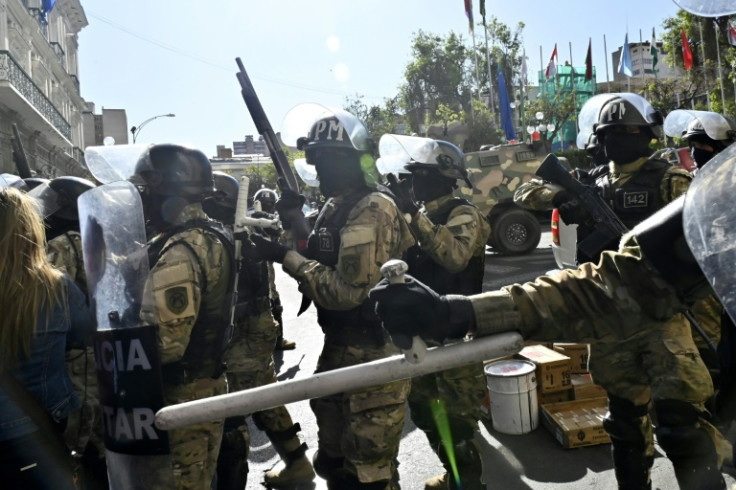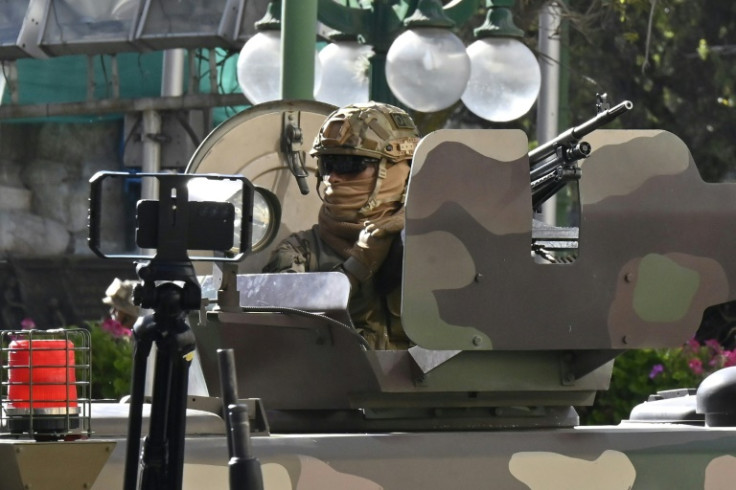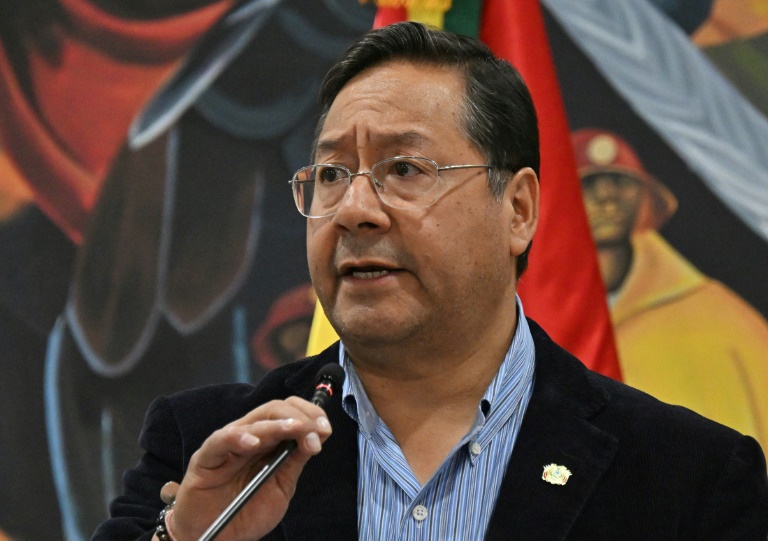Bolivia’s President Luis Arce triumphed after a failed coup attempt this week, but the country has entered a new period of instability during a severe economic crisis.
This is what you need to know about the fallout of the botched uprising in the small Andean nation, rich in natural gas and lithium reserves:
It was a brief but dramatic series of events: Soldiers and tanks deployed to a historic plaza in central La Paz, taking up position in front of the presidency and other government buildings.
They tried to break through a door of the presidency, and rebel army chief Juan Jose Zuniga declared his aim to “restructure democracy.”
Not long after, he was captured and bundled into a police car and the troops pulled back.
Fourteen civilians were injured with lead pellets and authorities arrested 21 military and civilian suspects, including Zuniga and the naval and air force chiefs.
Bolivia and alarmed foreign allies hailed a victory for democracy, but much about the coup remains murky.
Zuniga has alleged Arce was in on the plans and wanted the coup staged to boost his popularity, which the president has firmly denied.
What is clear, analysts say, is that something is rotten within the armed forces. Just how big the problem is, remains to be seen.
“I think there is a problem within the armed forces, but the fact that the coup d’etat was contained quickly says that, for now, civilian power prevails” over the military, said Gustavo Flores-Macias, an analyst at Cornell University.
Analysts agree that Arce has emerged stronger after the botched uprising — for now.
“In the short term this supports his government. But this will be brief,” said Pablo Calderon, an international relations professor from London’s Northeastern University.
With just over a year left to finish his term which began in 2020, Arce is facing discontent from powerful businesses and freight transporters over the country’s economic decline.
He is also battling a faction within his party, the Movement Towards Socialism, which is backing former President Evo Morales as candidate in the 2025 presidential election.
The fleeting uprising “will give a boost” to Arce’s likely candidacy for reelection and was “a show of force” against Morales, said analyst Carlos Cordero, from the Bolivian Catholic University.
Morales on Friday questioned the official version of “a coup with zero wounded, zero shots, zero deaths” and called for an investigation into the uprising.
Morales, Bolivia’s first Indigenous president, was extremely popular until he tried to bypass the constitution and seek a fourth term in office in 2019.
The leftist won that vote but was forced to resign amid deadly protests over alleged election fraud, and fled the country.
He returned after his former ally Arce won the presidency in October 2020, but since then a power struggle has grown between the two men.
Morales has increasingly criticized the government and is trying to get back into power, despite being disqualified by the Constitutional Court.
Arce may now be the center of attention, but Morales continues to “be the moral leader of the Bolivian left,” said Calderon, adding, “I think it will be very difficult for Arce to put him in a box or exclude him” from any political negotiation process.
Bolivia, home to 12 million people and an Indigenous majority, has in recent weeks been rocked by an economic crisis due to a drop in gas production, a crucial source of foreign currency.
The country has had to reduce fuel imports and there is a shortage of dollars, which has triggered protests. The cost of living has also increased.
Rich in natural gas reserves, Bolivia’s sharp decline in production is attributed by experts to a lack of investment and exploration.
Bolivia has some of the world’s largest deposits of lithium and has turned its focus to the crucial metal, signing contracts with Russian and Chinese companies to develop the industry.
However, these lithium projects are still in their infancy.
Northeastern University’s Calderon said the coup bid will only make the economic situation more difficult.
“Uncertainty tends to be bad for business,” he said.
AFP

AFP

AFP







